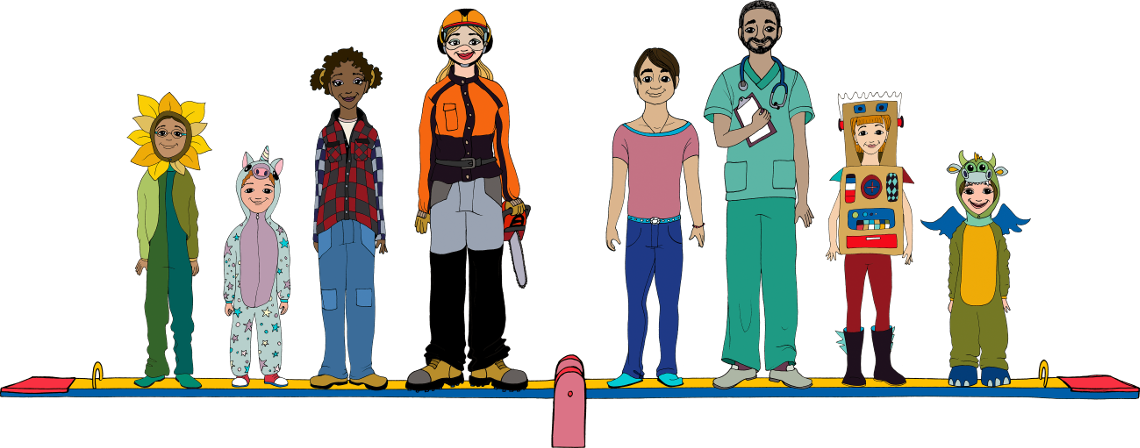Goals

Brief description of the issue
We usually learn to use a universal discourse that lets us believe that the world is only masculine, which contributes to making women invisible. The English language we teach children is unfortunately full of sexism and gender stereotypes. Some of these words associated with one gender or another are often at the expense of girls, but they can also have a negative impact on boys’ identity development. We often don’t realize the impact that the words we are using can have.
This page shows a few words and expressions reinforcing stereotypes, what we can use instead of those expressions as well as an activity you can put in place with your students to uncover the stereotypes hidden in our interactions with children.
Stereotypical words and expressions
| Stereotypical word or expression | Why is it stereotypical? | What should we say instead? |
|---|---|---|
| Mankind | We refer to the human condition as being male. | Humankind, humanity |
| Man, men (used to refer to both men and women) | We use man as being universal and encompassing of both men and women. | Humans, people |
| Girls / Boys Gals / Guys | We categorize students in two groups, reinforcing the differences between them and ignoring other gender identities. | Folks, friends, group, etc. |
| Your mom/mother (referring to domestic tasks) | While referring to parenting and domestic tasks, avoid systematically referring to the mother. | Your parents or your parent |
| Your dad/father (referring to the working sphere) | While referring to the public or working sphere, avoid referring systematically to the father. | Your parents or your parent |
| Your mom and dad, your mother and father | When we always refer to children’s parents as being by default a heterosexual couple, we ignore other family settings and reinforce this stereotype. | Your parents |
| Fireman, policeman, stewardess | When we use masculine words to talk about traditionally male jobs and feminine words to talk about traditionally female jobs, we reinforce job-related gender stereotypes. | Firefighter, police officer, flight attendant |
| A strong man | When we need help to move an object, we must avoid asking boys systematically for help, telling them we need “strong men”, because strength isn’t exclusive to men. | A strong friend, a strong student, a strong one |
To go further
Multiple resources can help you use a non-stereotypical language that is inclusive of all students.
